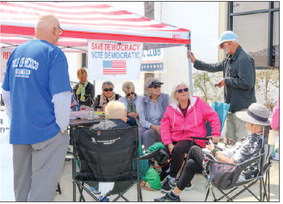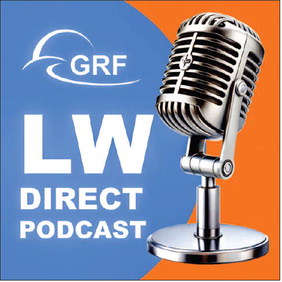Overcoming Roadblocks to Achieve Healthy Eating
Here are some suggestions for dealing with the common problems that can make it harder for older people to follow through on smart food choices.
Food Tastes Different?
Are foods not as tasty as you remember? It might not be the cook’s fault! Maybe your sense of taste, smell, or both has changed. Growing older, having dental problems, and medication side effects can cause your senses to change. Taste and smell are important for healthy appetite and eating. Try adding fresh herbs, spices, or lemon juice to your plate. If you drink alcohol or smoke, cutting back can improve your sense of taste.
Feeling Sad and Don’t Want to Eat?
Feeling blue now and then is normal, but if you continue to feel sad, ask your doctor for help. Being unhappy can cause a loss of appetite. Help might be available. You might need to talk with someone trained to work with people who are depressed.
Just Not Hungry?
Maybe you are not sad, but just can’t eat very much. Changes to your body as you age can cause some people to feel full sooner than they did when younger. Or lack of appetite might be the side effect of a medicine you are taking— your doctor might be able to suggest a different drug.
Try being more physically active. In addition to all the other benefits of exercise and physical activity, it may make you hungrier.
If you aren’t hungry because food just isn’t appealing, there are ways to make it more interesting. Make sure your foods are seasoned well, but not with extra salt. Try using lemon juice, vinegar, or herbs to boost the flavor of your food.
Vary the shape, color, and texture of foods you eat. When you go shopping, look for a new vegetable, fruit, or seafood you haven’t tried before or one you haven’t eaten in a while. Sometimes grocery stores have recipe cards near items. Or ask the produce staff or meat or seafood department staff for suggestions about preparing the new food. You can also find recipes online.
Trouble Getting Enough Calories?
If you aren’t eating enough, add snacks throughout the day to help you get more nutrients and calories. Raw vegetables with hummus, low-fat cheese and whole grain crackers, a piece of fruit, unsalted nuts, or peanut butter are good examples. You can try putting shredded low-fat cheese on your soup or popcorn or sprinkling nuts or wheat germ on yogurt or cereal.
If you are eating so little that you are losing weight but don’t need to, your doctor might suggest a protein nutrition supplement. Sometimes these supplements help undernourished people gain a little weight. If so, they should be used as snacks between meals or after dinner, not in place of a meal and not right before one. Ask your doctor how to choose a supplement.
Weight Issues Adding to Frailty?
Some older adults do not get enough of the right nutrients. These problems can put you at risk of developing weak bones and muscles, which can make you frail and unable to do daily activities. Obesity is a growing problem in the United States, and the number of older people who are overweight or obese is also increasing. But, just losing weight is not necessarily the answer. That’s because sometimes when older people lose weight, they lose more muscle than fat. That puts them at greater risk for becoming frail and falling. They also might lose bone strength and be at risk for a broken bone. Exercise helps you keep muscle and bone. Also, for some people, a few extra pounds late in life can act as a safety net should they get a serious illness that limits how much they can eat for a while.
-From www.nai.gov



